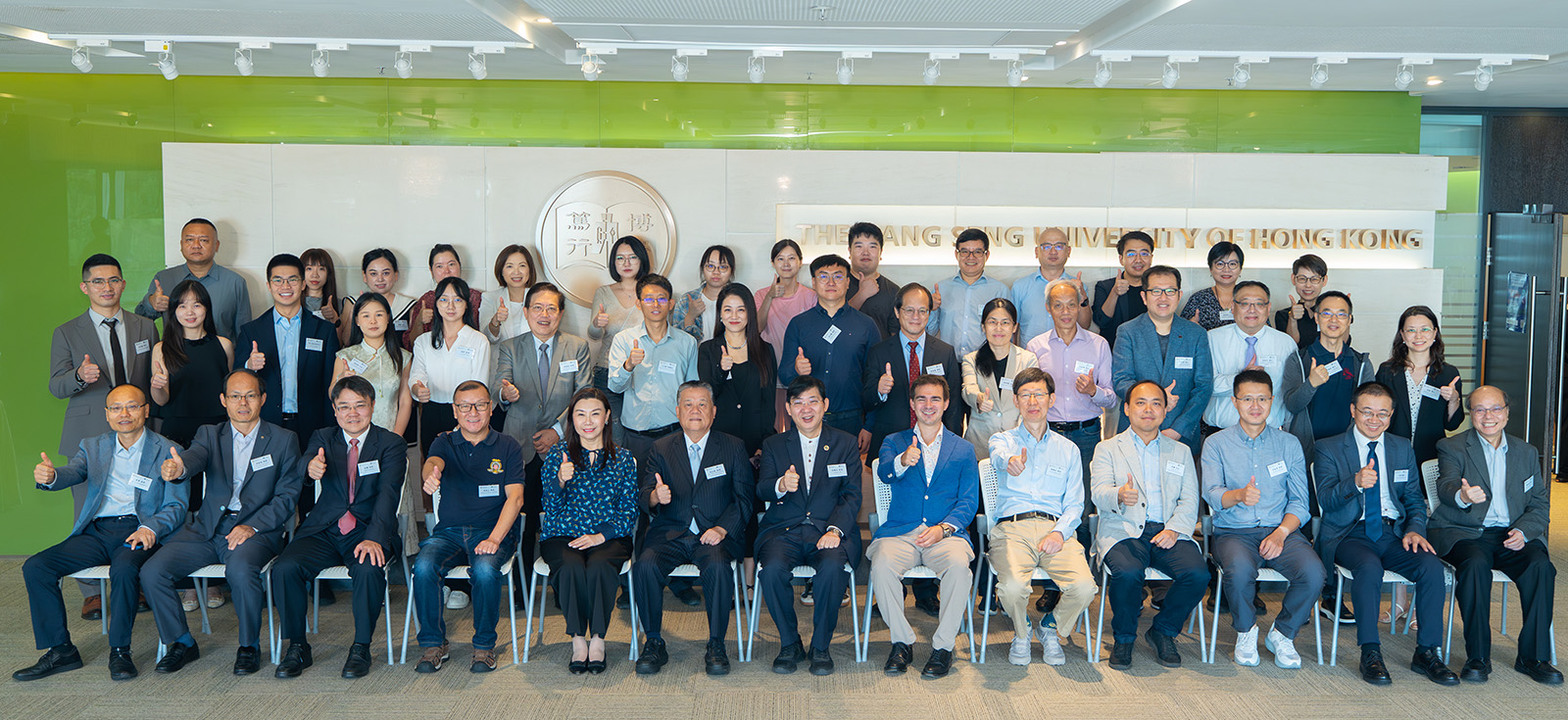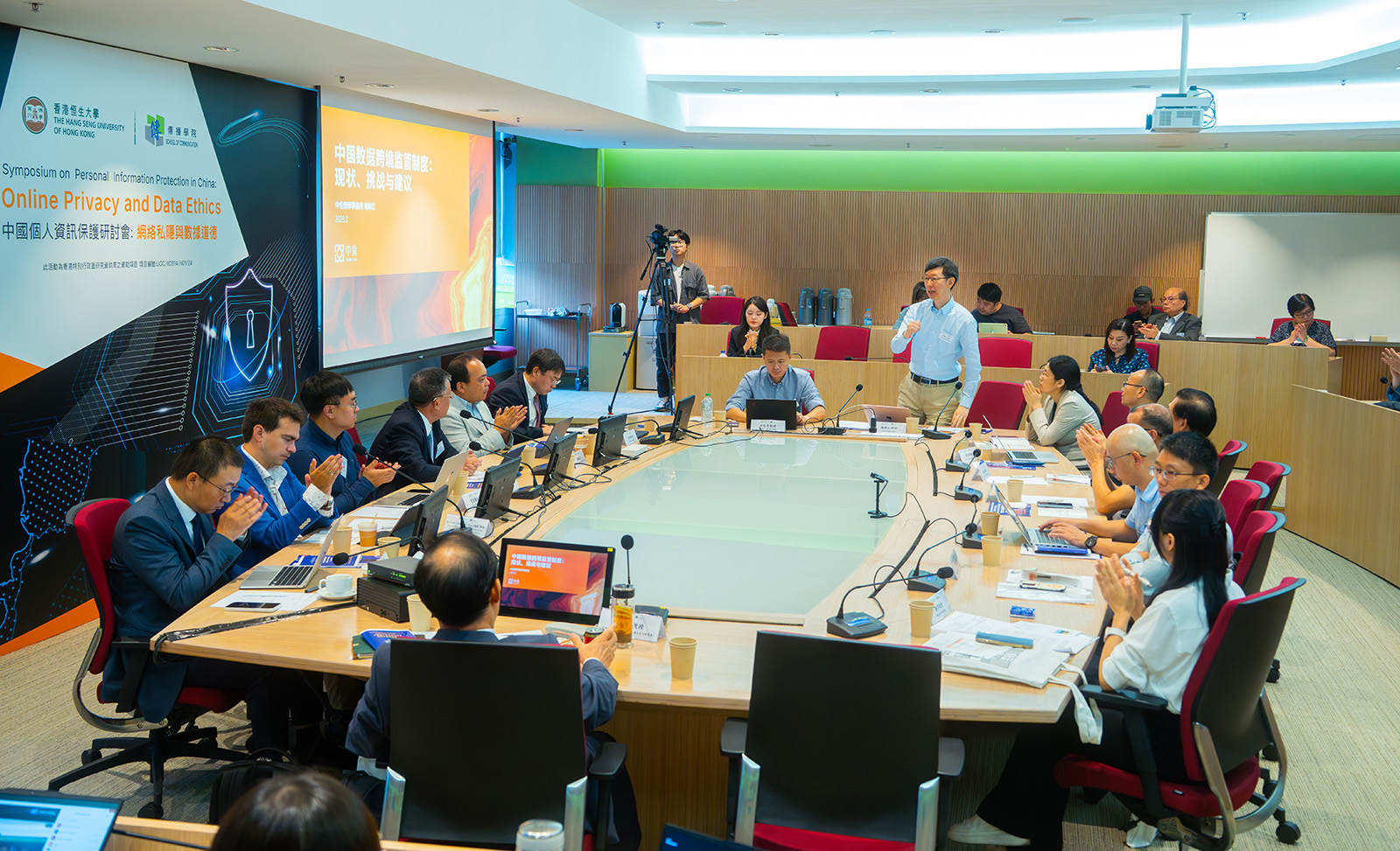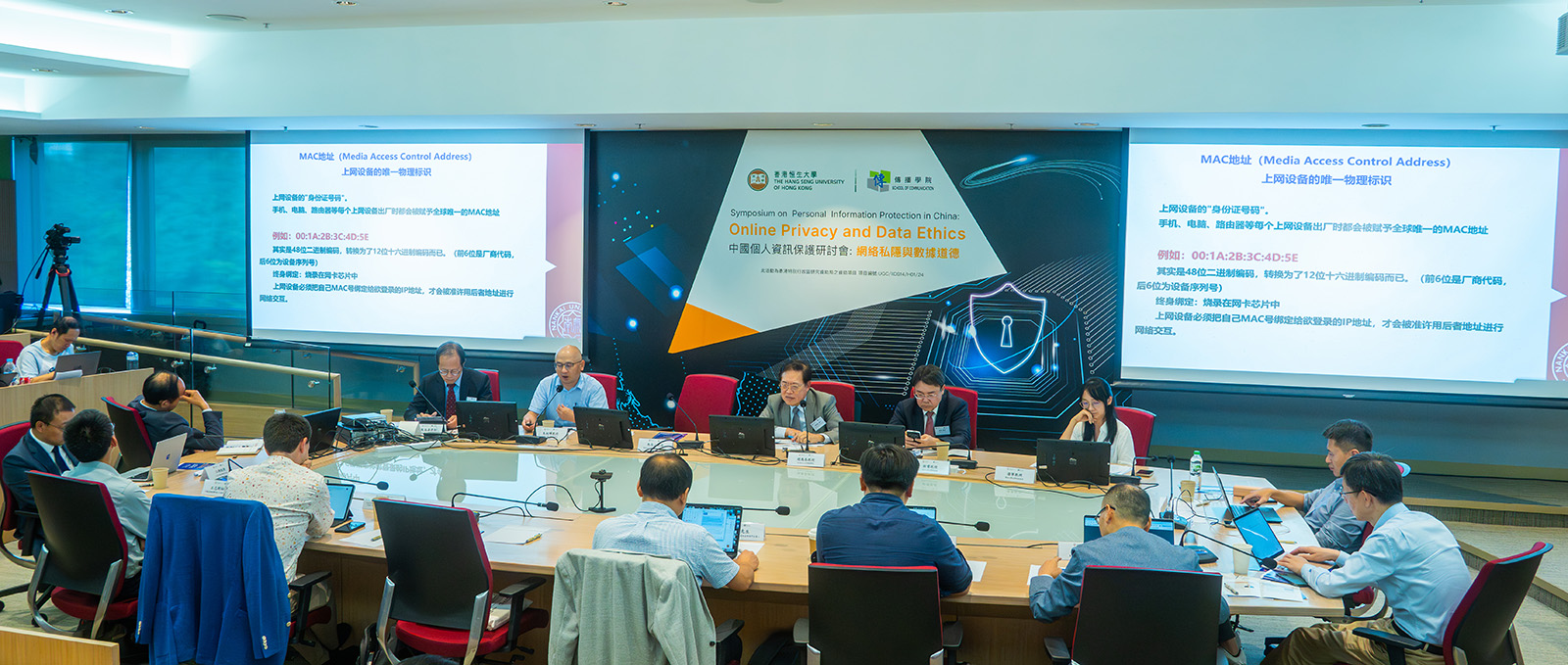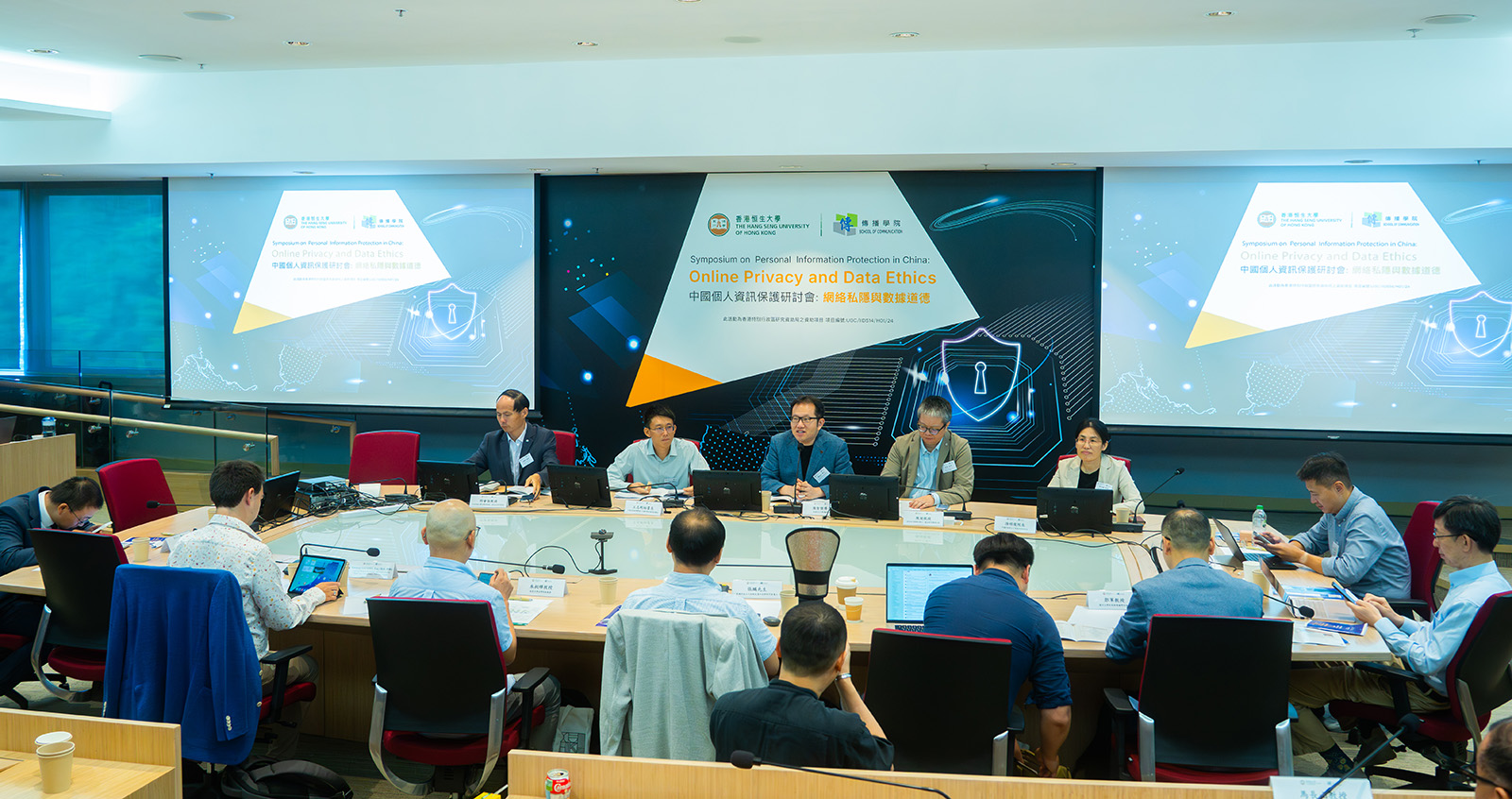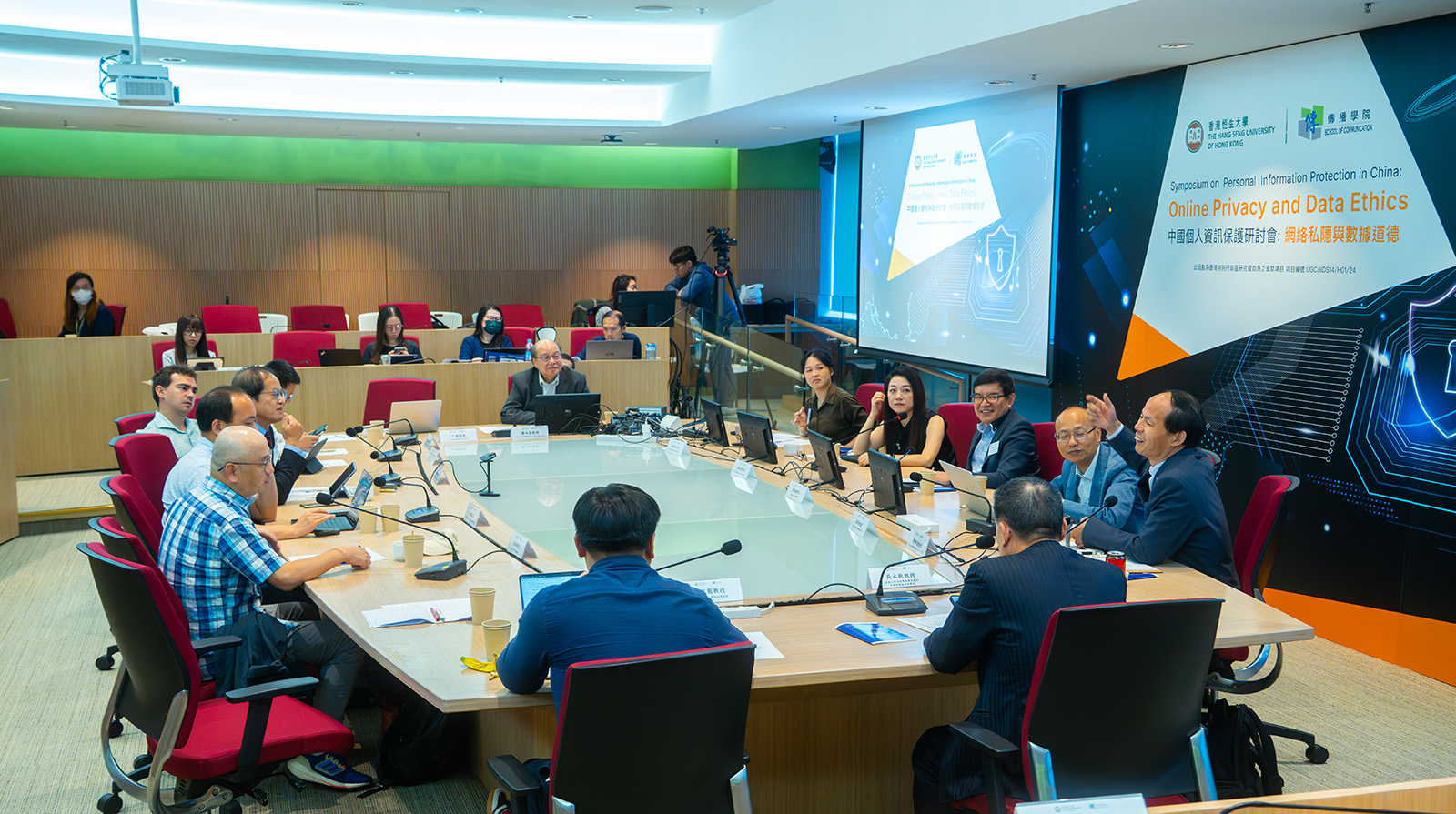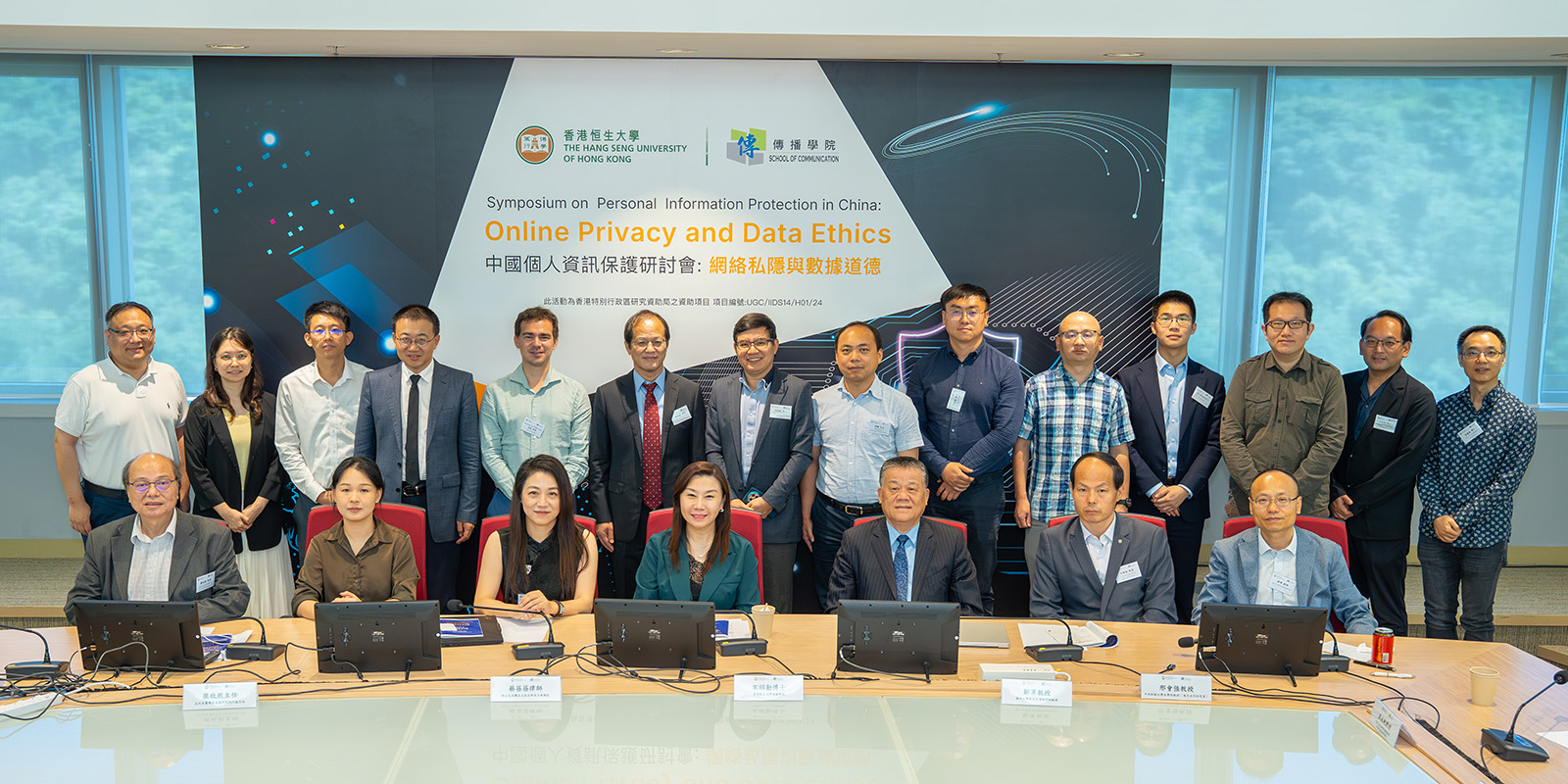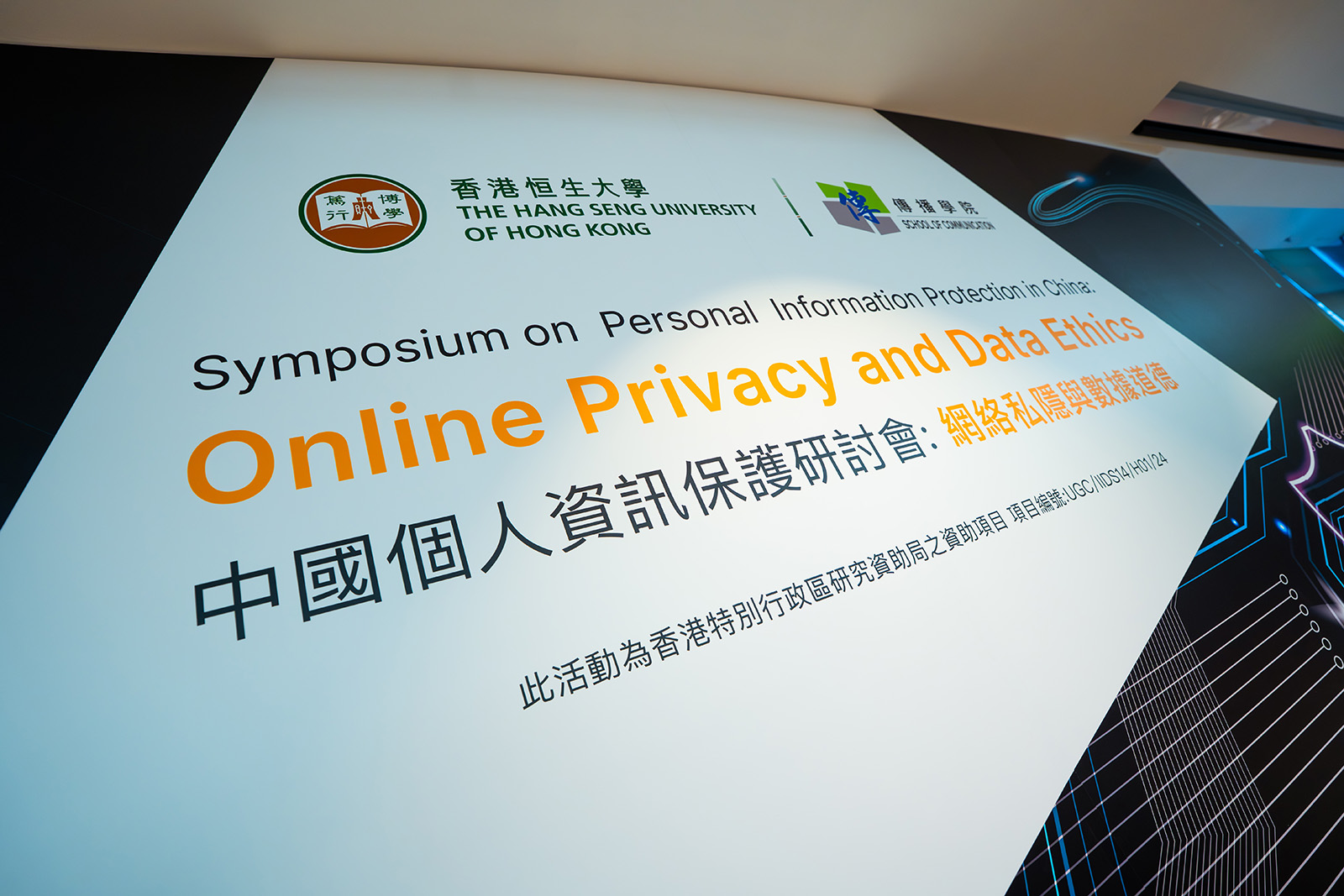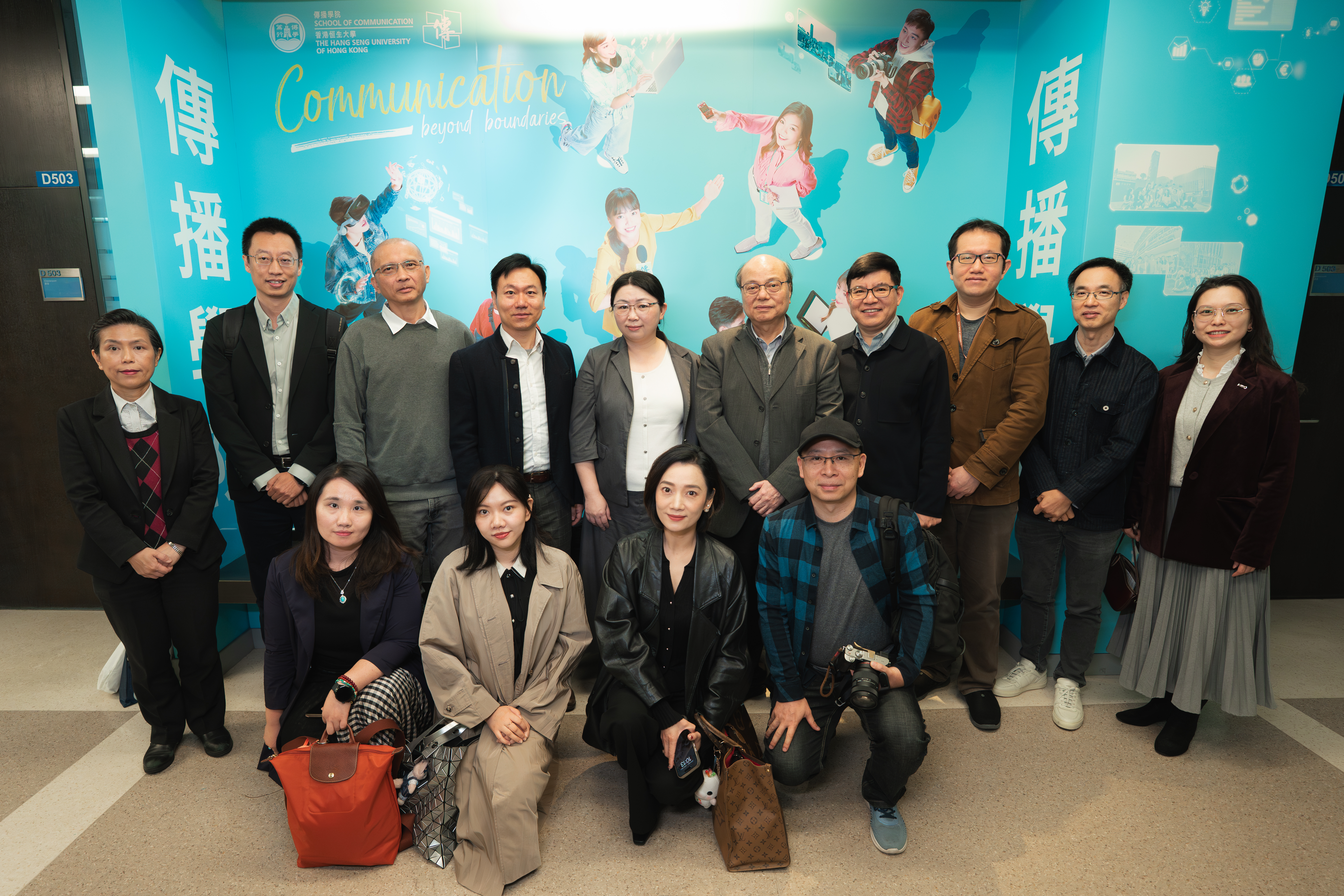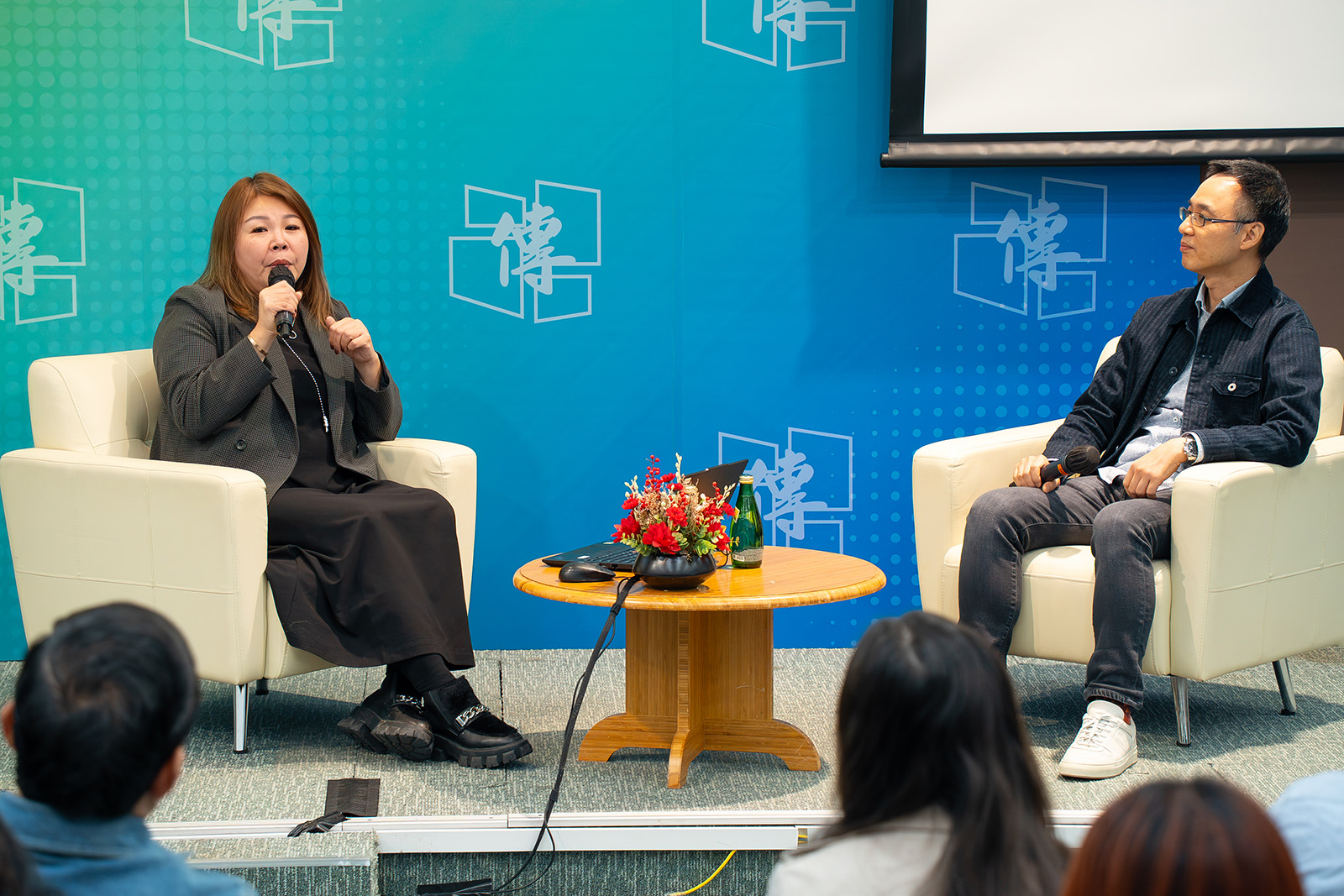In response to the challenges of the data era, the School of Communication at Hang Seng University of Hong Kong hosted the “Symposium on Personal Information Protection in China: Online Privacy and Data Ethics” on 2–3 October 2025. The event brought together academics, legal practitioners and industry experts from the United Kingdom, the United States, Mainland China, Taiwan and Hong Kong, with simultaneous online streaming via Zoom. Funded by the Research Grants Council of the Hong Kong Special Administrative Region (Project No.: UGC/IIDS14/H01/24), this symposium explored legal, ethical and governance challenges in the data era.
Professor Simon HO, the President of Hang Seng University of Hong Kong, delivered the opening address, noting: “We are living in a world being radically reshaped by data. The digital technologies that connect us, empower us, and drive innovation are also generating profound ethical questions we have never faced.. In this new frontier, online privacy and data ethics are not just technical concerns; they are the essential moral cornerstones of a trustworthy cyberspace.” He emphasised that the rapid advancement of artificial intelligence and big data technologies has made personal information protection a core concern for governments, businesses and academia alike. In his welcome address, Professor Scarlet TSO, Dean of the School of Communication, stated: “Communication educators and media practitioners must possess professional judgement and ethical awareness, understanding the impact of disseminating and utilising information on individuals and society. Professor HONG, Yanqing from the School of Law at Beijing Institute of Technology, who delivered the keynote address and has participated in drafting multiple national regulatory documents, outlined key shifts in China’s personal information protection and data security legislation and oversight. Centring on the successively enacted Cybersecurity Law, Data Security Law, and Personal Information Protection Law, he specifically proposed: “Three compliance pathways—security assessments, personal information protection certification, and standardised contracts for cross-border data transfers—as the regulatory framework for data exports.” He also addressed risk governance in generative artificial intelligence, particularly the requirements for content safety, harmlessness, and accuracy outlined in the “Provisions on the Administration of Deep Synthesis of Internet-Based Information Services,” alongside the emergence of more open data security concepts.
The first day’s agenda comprised three thematic panels: The inaugural session, “Cross-Border Data Transmission and International Experience“ moderated by Chair Professor WU, Yeong-Chyan of Shih Hsin University, addressed China’s legal framework for data outbound transfers, challenges in cross-border data flows, and international governance models. The second session, “Rights and Powers of Personal Information Protection,” moderated by Professor Ronald CHIU of the School of Communication, focused on legal bases for processing personal information, digital identity authentication, and legal challenges arising from citizens’ online device usage information. The third session, “Regulation and Ethics of Artificial Intelligence, Algorithms, and Facial Recognition,” moderated by Dr CHAN, Chi Kit of the School of Communication, explored ethical issues in AI industry innovation, algorithm regulation, and personal information protection. Each session featured thematic presentations and discussions, with participants engaging in in-depth exchanges on legal frameworks, technological governance, and ethical education.
The fourth session on 3 October, including a comprehensive discussion chaired by Dr Howard SONG of the School of Communication, focused on “Personal Data Protection and Data Security in Hong Kong and the Greater Bay Area”. Presentations covered comparative policies on cross-border data flows within the Greater Bay Area, particularly examining Hong Kong’s role in personal information protection and compliance between China and the US, alongside regional practices and considerations regarding data security regulations. The Symposium concluded with closing remarks by Professor XING, Huiqiang of the Central University of Finance and Economics, as the Co-Investigator of the research project, emphasised the critical importance of cross-border collaboration and multi-stakeholder participation in advancing sustainable data governance, followed by acknowledgements from Prof Trevor SIU of Hang Seng University.
Participants acknowledged that innovations in data technology not only present opportunities for the information industry but also impose new demands on journalism and communication education. The symposium further called for establishing cross-institutional, cross-regional, and cross-disciplinary collaboration platforms to share best practices and foster the integrated development of law, technology, and ethics. This approach aims to build a safer, more trustworthy, and sustainable digital environment.
This symposium not only facilitated exchanges between academia and industry but also provided fresh perspectives and practical directions for future work in personal information protection, online privacy governance, and data ethics. It underscored Hong Kong’s research influence in digital governance and cross-border collaboration.
